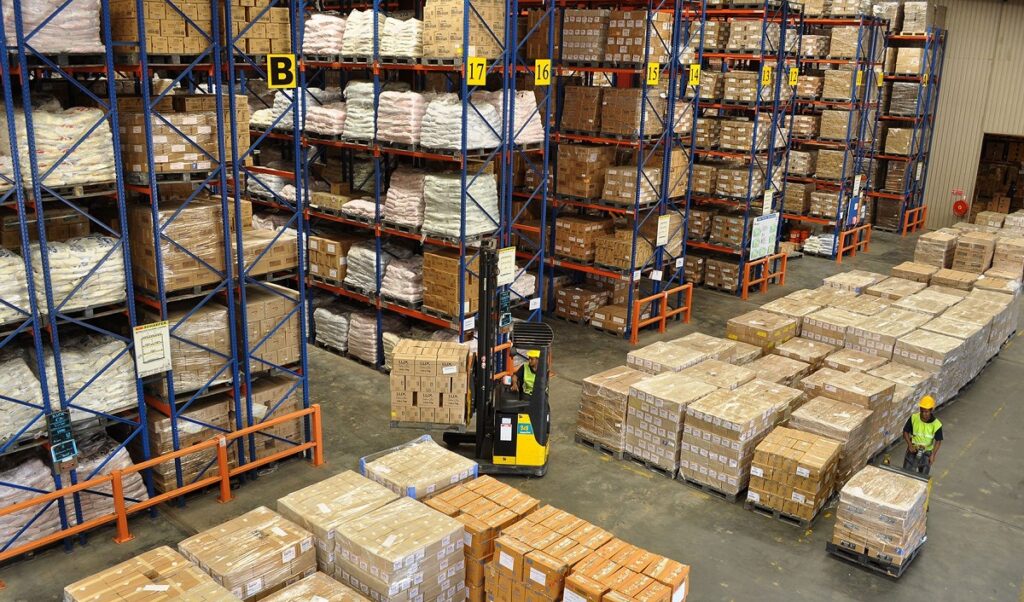
In today’s fast-paced business landscape, efficient and reliable warehousing services play a pivotal role in ensuring the smooth flow of goods and materials across various industries. India, as one of the world’s fastest-growing economies, has witnessed a significant transformation in its warehousing sector. This blog aims to delve into the realm of warehousing services in India, exploring its importance, key features, challenges, and future prospects.
I. The Significance of Warehousing Services:
- Enhancing Supply Chain Efficiency: Warehousing in Kolkata act as vital nodes in the supply chain, enabling seamless inventory management, order fulfillment, and timely deliveries. They bridge the gap between production and consumption, optimizing the flow of goods and reducing lead times.
- Inventory Management and Space Optimization: Warehousing facilities provide a centralized space for businesses to store their products efficiently. By employing modern techniques like barcoding, RFID, and automated systems, inventory accuracy and visibility are enhanced, leading to better demand forecasting and reduced carrying costs.
II. Key Features of Warehousing Services in India:
- State-of-the-art Infrastructure: India’s warehousing industry has witnessed substantial investments in recent years, leading to the development of world-class infrastructure. Modern warehouses are equipped with advanced technologies, such as temperature control, pest management, CCTV surveillance, and fire safety systems, ensuring the safety and integrity of stored goods.
- Integrated Logistics Solutions: Warehouses in Bangalore often extend beyond basic storage facilities. Many providers offer value-added services like packaging, labeling, quality control, kitting, and assembly, streamlining the entire logistics process and adding value to the supply chain.
- Pan-India Reach: With a vast geographical expanse, warehousing in Kolkata are strategically located to cover major industrial hubs and transportation corridors. This extensive network enables businesses to establish a robust distribution network, reducing transportation costs and enhancing customer satisfaction.
III. Challenges in the Indian Warehousing Sector:
- Fragmented Market: The warehousing industry in India is fragmented, with a large number of small and medium-sized players dominating the market. This fragmentation leads to inconsistencies in service quality, lack of standardization, and limited scalability.
- Infrastructure Gap: While significant progress has been made in enhancing warehousing infrastructure, there is still a considerable gap in terms of quality and capacity. Inadequate road connectivity, limited multimodal transportation options, and a shortage of skilled labor pose challenges to the sector’s growth.
IV. Future Prospects and Innovations:
- E-commerce Boom: The rapid growth of e-commerce in India has triggered a surge in demand for efficient warehousing services. As online retail continues to expand, the need for well-equipped fulfillment centers closer to urban areas is expected to rise, fostering the development of specialized e-commerce warehouse in Bangalore.
- Technology Adoption: Emerging technologies like Internet of Things (IoT), robotics, and artificial intelligence (AI) are gradually making their way into the warehousing sector in India. Automation and digitization of processes can enhance operational efficiency, reduce errors, and optimize resource utilization.
- Cold Chain Logistics: With the increasing focus on perishable goods, the demand for cold storage and temperature-controlled warehousing services is on the rise. This presents significant opportunities for investment and innovation, as India seeks to strengthen its cold chain infrastructure and cater to the evolving needs of the food and pharmaceutical sectors.
Conclusion:
Warehousing services in India have evolved from simple storage facilities to critical components of a well-functioning supply chain. The sector’s growth trajectory is driven by investments in infrastructure, technological advancements, and changing consumer preferences. With continued improvements in infrastructure and the adoption of innovative solutions, the Indian warehousing industry is poised to play a pivotal role.